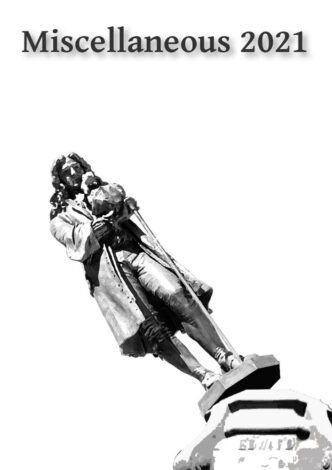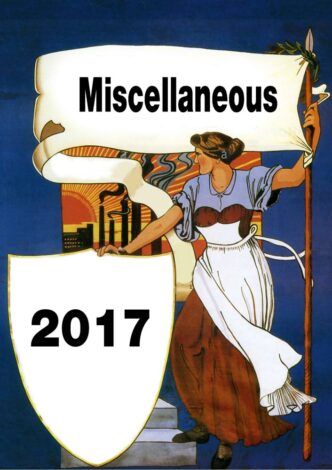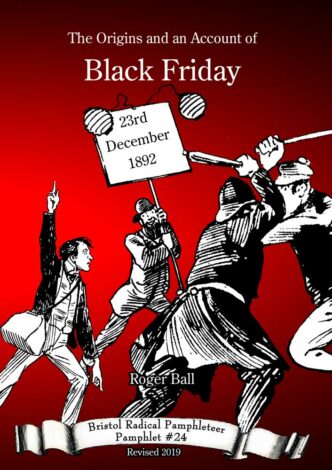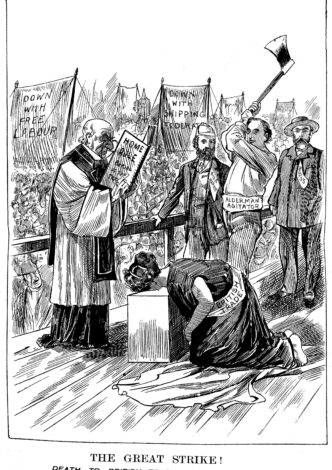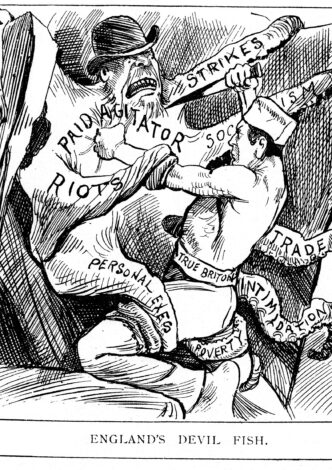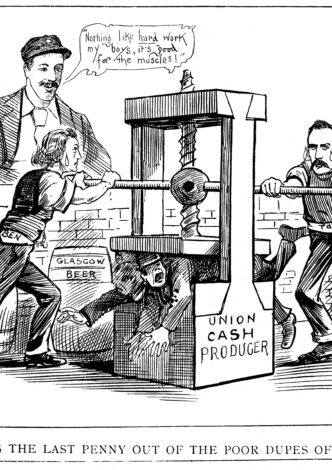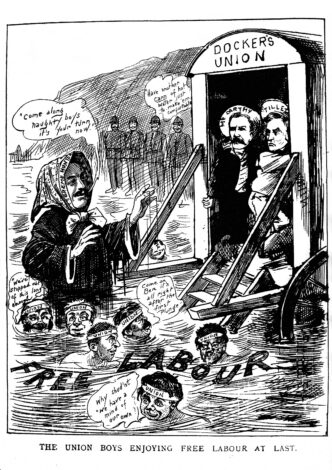 Not A BRHG Event
Not A BRHG Event
BRHG are very pleased to announce that as part of LGBTQ+ History Month 2024 Mike Richardson will be speaking about the 'people's lawyer' Hugh Holmes Gore, the subject of his excellent book. Anglo – Catholic convert to the left, Hugh Holmes Gore, was a key figure in Bristol’s labour movement during the last two decades of the nineteenth century. Gore linked Clifton Christian Socialists, morally concerned about the poverty and suffering caused by economic depression, with the working class […]
The success of strikes in 1889 by Bristol dock workers over pay and conditions led to a massive rise in membership of the newly formed dockers unions. In the autumn of 1892 timber merchants based on the Floating Harbour, along with their ‘bosses union’ the strike-breaking Shipping Federation, launched a counter-offensive. Its aim was to smash the dockers unions and re-introduce the hated ‘piecework’. The outcome would be a dramatic confrontation between strikers and the military on the streets […]
 Not A BRHG Event
Not A BRHG Event
Glenside Museum, The Chapel, Glenside Campus, Blackberry Hill, Stapleton, Bristol BS16 1DD Bristol Radical History group author, researcher and co-founder Roger Ball talks us through the REAL ‘Black Friday’ i.e. not the end of November shopping spree but the strikes and protests of autumn 1892 in Bristol, starting with the ‘Sweet Girls’ dispute at the Redcliff Confectionery works. Come and listen to a tale of ‘thousands of working class Bristolians’ marching to the Horsefair with lanterns & […]
Bristol was rocked by two major strike waves in the late 19th Century, the first (1889-90) marked the emergence of ‘new unionism’ representing male and (significantly) female unskilled and semi-skilled labourers. Victory in these strikes improved pay and conditions for workers but led to an organised counter-offensive by employers in the autumn of 1892. The response of workers was a second strike wave which united miners, dockers and female confectionary workers, culminating in 'Black Friday' on […]
Autumn 1892 in Bristol saw a violent class war between employers, strike-breaking labour and police on one side and strikers and their mass of working-class supporters on the other; picketing, mass marches and public meetings of thousands of ‘new’ industrial unionists were common. The strike-wave culminated in the use of military and police by the local state to break up a pre-Christmas parade which had been organised to collect money for strikers and their families. This event, which popularly […]
 Not A BRHG Event
Not A BRHG Event
